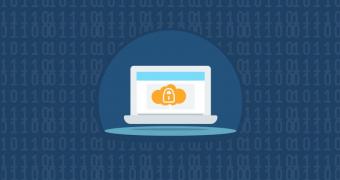An MIT research study highlights potential problems if government agencies ever managed to get access to encrypted data communications.
The report highlights how the access that government agencies should get by regulating encrypted communications would be used at the same time by would-be attackers to inflict damage on the companies and services these encrypted channels are protecting in the first place.
This is actually a rehashing of a similar idea that was first discussed in a similar study in 1997, but was brought back into the public's eye after FBI Director James Comey called for public debate on the notion of regulating data encryption and adding a special "door" for law enforcement to use in their investigations.
“We aren’t seeking a back-door approach. We want to use the front door, with clarity and transparency, and with clear guidance provided by law," said Mr. Comey, who continues, "We are completely comfortable with court orders and legal process — front doors that provide the evidence and information we need to investigate crime prevent terrorist attacks."
On the other side, the security researchers that contributed to the MIT study were quick to point out that, "The complexity of today's Internet environment, with millions of apps and globally connected services, means that new law enforcement requirements are likely to introduce unanticipated, hard to detect security flaws."
Access to encrypted data would be different in each country
And let's not get into the jurisdiction problem, since Web-based services have had a hard time dealing with all the different law enforcement agencies across the world as it is, and all the various legal systems that come with each country.
Even if Mr. Comey doesn't call it a back-door policy, in real life, it is, all thanks to the current geo-political situation.
If the US ever voted such a law in place, there's no doubt many other countries would follow suit, including its enemies. You can imagine how much it would take North Korea or China to issue warrants into the activity of American companies and then use the data in their encrypted communications at their advantages.
Mr. Comey may be forcing the matter because of terrorism right now, but he's clearly not seeing the big picture, the one in which he's wielding a double-edged sword which he may accidentally cut his own arm off.

 14 DAY TRIAL //
14 DAY TRIAL //